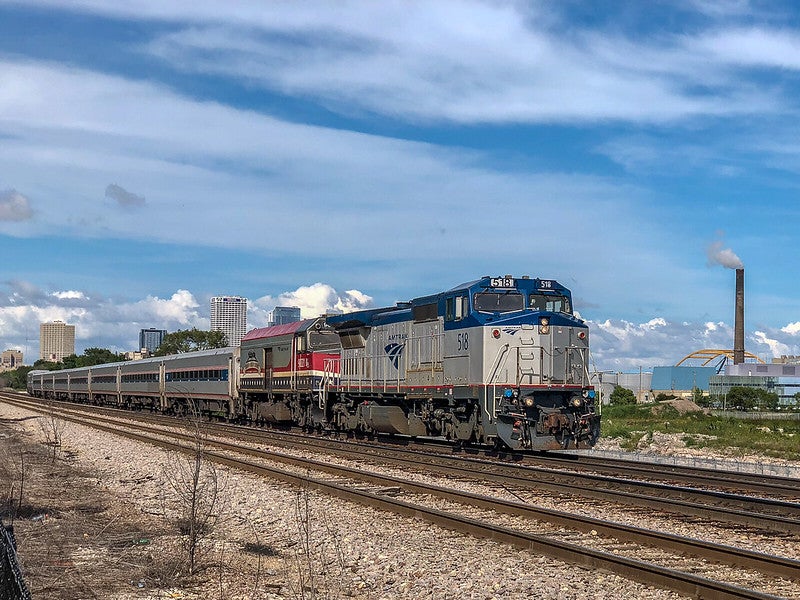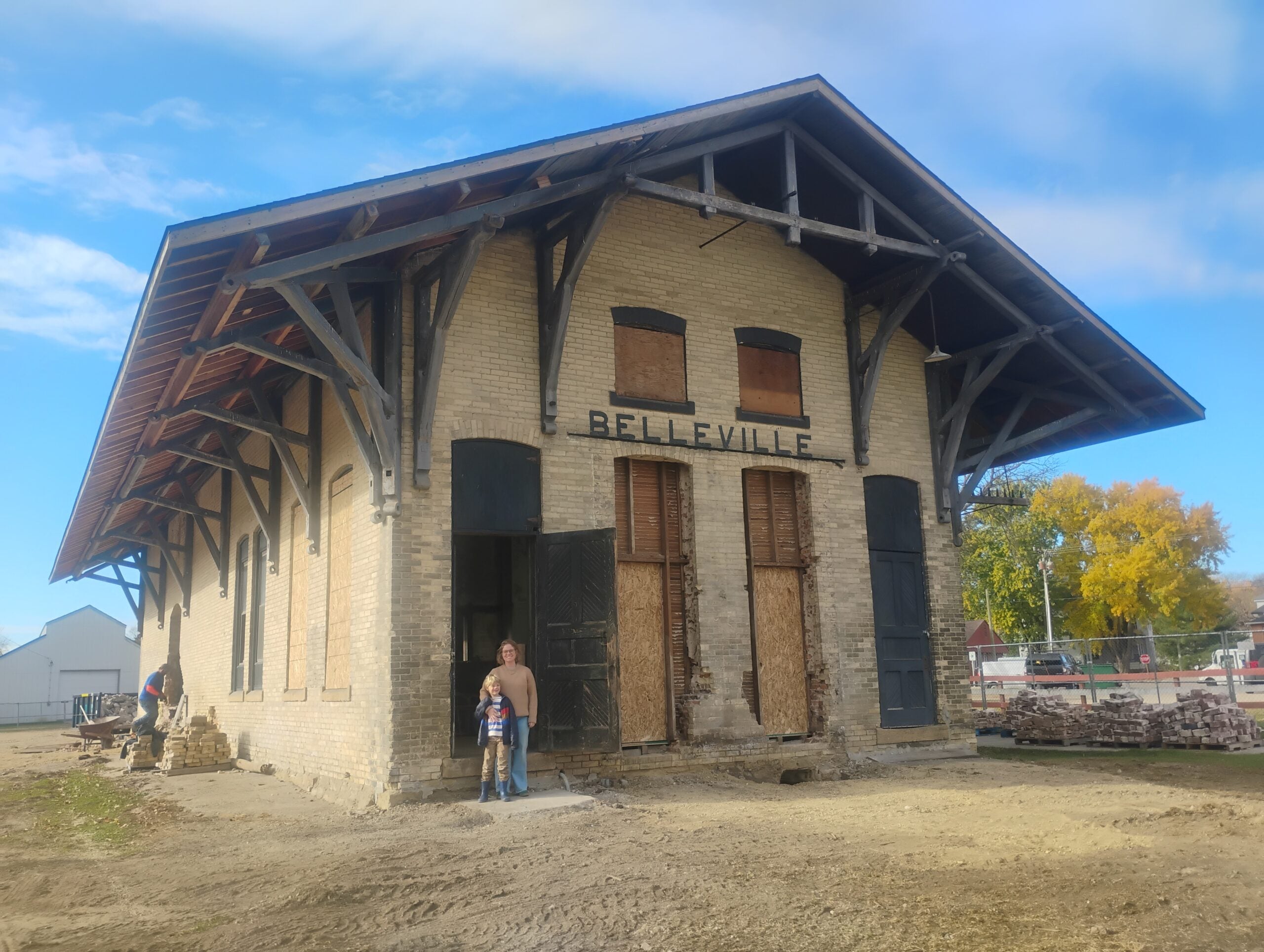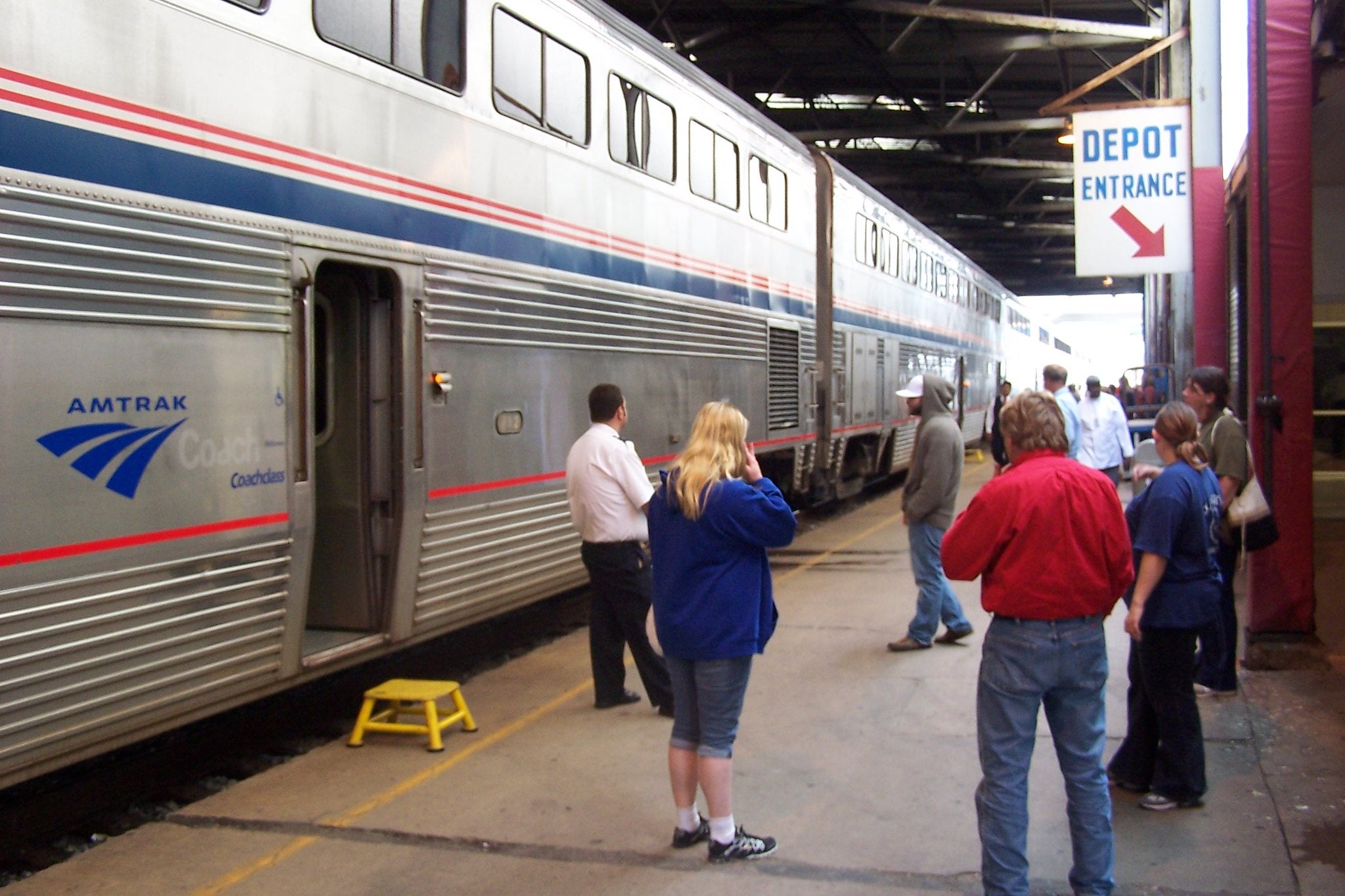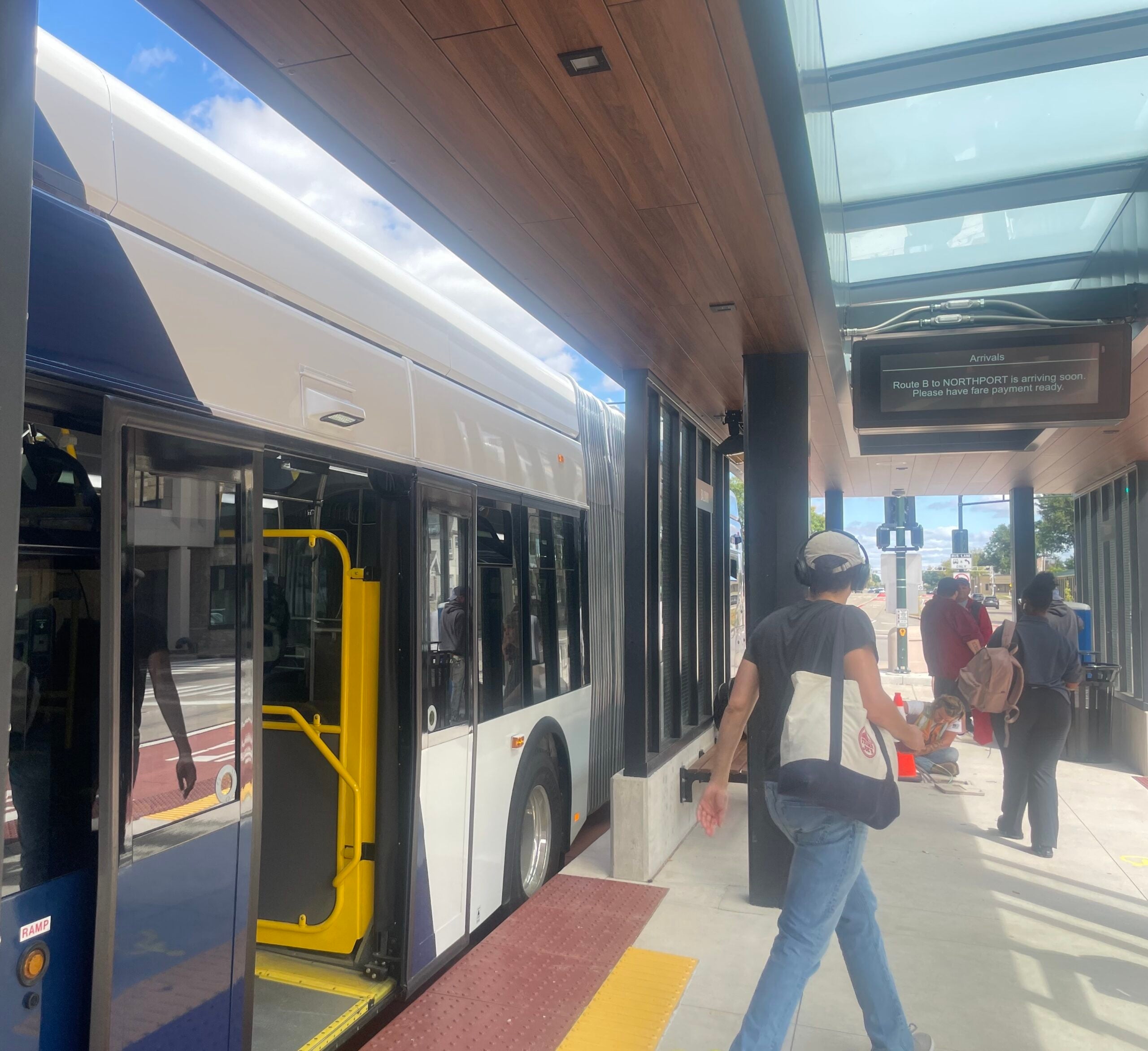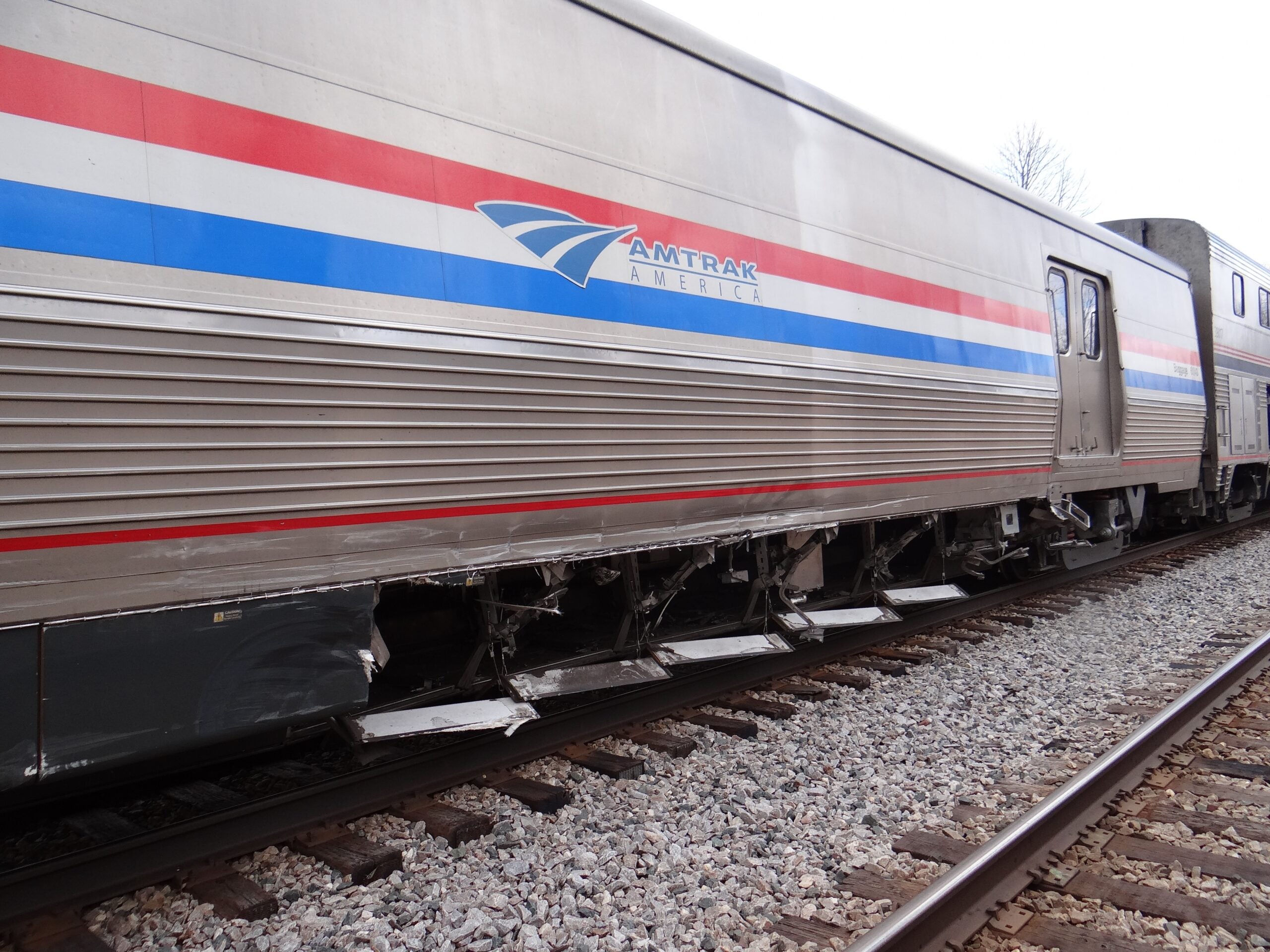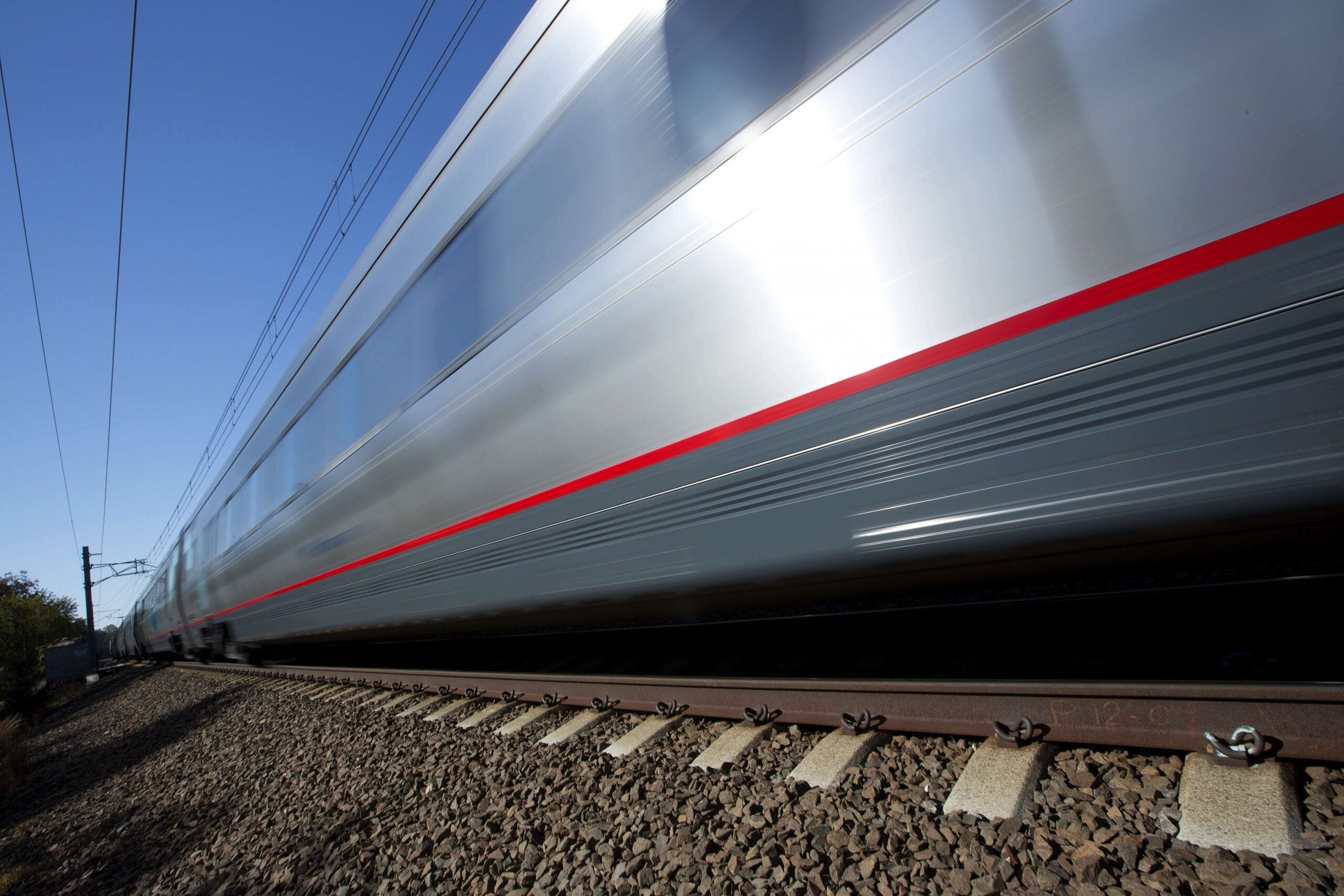Madison officials are chugging along in their decades-old campaign to bring an Amtrak station to the capital city.
In her 2024 capital budget request, Madison Mayor Satya Rhodes-Conway is asking the Common Council to increase local funding from $350,000 to $400,000 to further study the potential for an Amtrak station in Madison. Along with planning and programming, part of that money could be used as the city’s required local match for participating in a federal passenger rail corridor identification program, according to the request.
Ultimately, Rhodes-Conway hopes Madison will get a piece of the $66 billion in federal funds allocated by Congress in 2021 for passenger rail expansion nationwide.
News with a little more humanity
WPR’s “Wisconsin Today” newsletter keeps you connected to the state you love without feeling overwhelmed. No paywall. No agenda. No corporate filter.
Rhodes-Conway acknowledges, however, that such plans for Madison are still years away at the very earliest.
“We’re at the beginning of the process, but it’s very important for us as a community, I think, to keep pushing, and to continue to say that we really want this service, so that folks at the federal level and also at Amtrak will continue to prioritize this particular corridor,” Rhodes-Conway said during a news conference earlier this month.
A 15-year plan released by Amtrak in 2021 proposed extending the existing Hiawatha rail line connecting Chicago and Milwaukee to include Madison. And, eventually, Amtrak suggested trips could be added to connect Madison to St. Paul and Minneapolis.
Additionally, a 2021 report from the U.S. Department of Transportation identified Madison as a “significant market” that would be “critical to the operational viability” of a passenger train line connecting Chicago to the Twin Cities.
But a lack of buy-in from the Republicans who control Wisconsin’s state Legislature could stop Madison’s hopes for an Amtrak station in their tracks.
Assembly Speaker Robin Vos, R-Rochester, has previously said he opposes using state funding for the proposal.
Madison Transportation Director Tom Lynch says the city would likely be able to move through the potential project’s initial planning phases without state funding.
“There will come a time, you know, (in) several years where we get into the design, final design and construction, and there will need to identify partners and ways to accomplish a local match,” Lynch said. “Those will be larger groupings of money and so we will need to find funding sources for that.”
Lynch estimates it could take six to eight years before an Amtrak station in Madison could be built. And much about such a project, including the final price tag, remains uncertain.
“This is a journey, and we’re just on the first step of the journey,” Lynch said. “Anything that we enjoy starts with the planning, and then it moves on to the, to the design, and then the actual implementation.”
Last year, Madison’s Common Council approved using $120,000 for a study narrowing down potential sites for a Madison Amtrak station. Lynch expects a report from that process to be released this fall.
In all, the mayor’s capital budget proposal for next year includes $266 million to be spent on infrastructure, buildings and other capital projects. The Common Council is set to vote on approval of that capital budget, along with the 2024 operating budget, in November.
Madison has been without a passenger rail station since 1972, when Amtrak discontinued its service to the capital city. Nonetheless, Lynch says he’s optimistic about Madison’s chances for restoration, pointing to the “historic” level of passenger rail funding set aside in Congress’ 2021 infrastructure deal.
“The bipartisan infrastructure law has provided more money for passenger rail than at any time in decades, and so this is a good time to be pursuing some of that,” Lynch said. “It’s been 50 years since we’ve had passenger rail. We’d like to bring it back to Madison.”
Hopes for passenger rail connecting Madison to Milwaukee came close to being realized about a decade ago, when the Obama administration zeroed in on Madison as connection point for high-speed trains. But then-Gov. Scott Walker, a Republican, derailed those plans after he took office in 2011 and rejected $810 million in federal funding allocated to Wisconsin for the project.
Wisconsin Public Radio, © Copyright 2025, Board of Regents of the University of Wisconsin System and Wisconsin Educational Communications Board.

